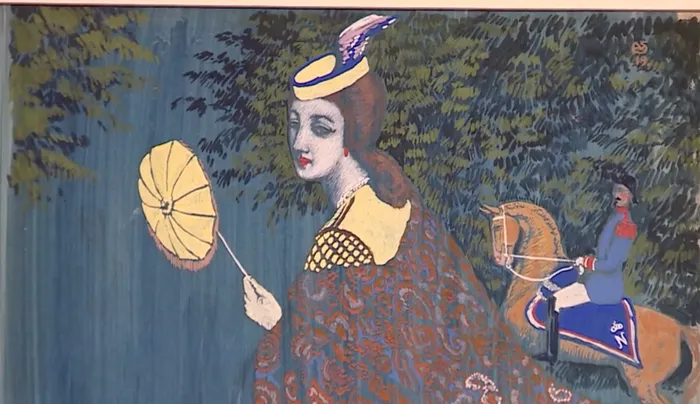WATCH: Georgian art festival in Brussels brings together East and West

Image: Supplied
The exhibition centres on the first three decades of the 20th century, when the art scene flourished in the South Caucasus country.
It is a period that includes a three-year interlude of independence (1918-1921), between the fall of the Russian empire and the invasion of the Soviet regime.
Irine Jorjadze, a Georgian curator, told Euronews that her country's avant-garde movement is unique.
"It was very important for Georgian avant-garde not only to study art and building institutions to research art, but also to use it as a method in their very avant-garde practices," she said in an interview.
"So, it makes Georgian avant-garde also very exceptional with this connection between the past and the future and the traditions."
The mixture of Eastern and Western elements is also evident, with various styles present in the work, such as Dadaism and Cubism - the former born out of the brutality of World War I and the latter from Spain's very own Pablo Picasso.
"This exhibition is also very good because it shows that our art is very close with the European art," Levan Chogoshvili, a Georgian plastic artist told Euronews.
"Today, many Georgian young artists try to go somewhere in the West, study there and return."
Visitors can also enjoy a programme of concerts, cinema, dance and theatre at various cultural venues in Belgium until mid-January 2024.
Polyphony, meaning multi-voices, is one of the core themes of the festival, both in music and as an opportunity for diverse communities to express their views.
The second theme is remembrance, which Europalia's artistic director, Dirk Vermaelen, said is key to understanding current events.
"Remembrance is about questioning the past and also to reflect on the future. How do you deal with a certain past, with the Soviet regime, which still has an impact today," Vermaelen said.
"It is also about conflicts of the past and the ones still going on today in Georgia, like in South Ossetia and Abkhazia and also, of course, the Ukrainian war that has an impact in Georgia."
An important part of the Europalia programme is the outcome of creative partnerships between Georgians and artists of other nationalities, with the commissioning of specific works for the festival.
Related Topics: